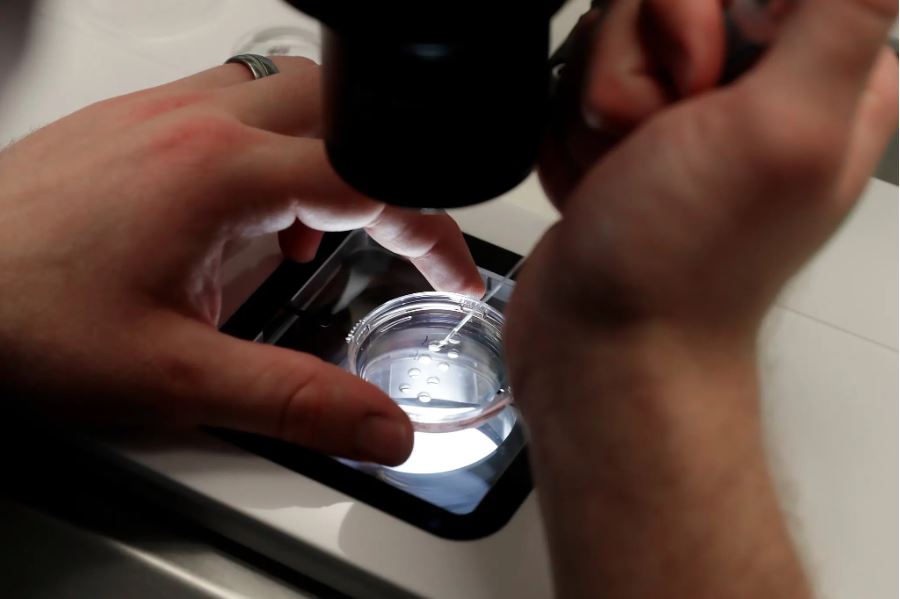Rep. Marc Molinaro recently became the first House Republican to cosponsor a bill protecting nationwide access to assisted reproductive technologies — including in vitro fertilization (IVF).
The Access to Family Building Act, H.R. 7056, was introduced in January 2024 by Rep. Susan Wild, a Pennsylvania Democrat, and would create an individual right to access IVF and other methods of assisted reproduction — including gamete or zygote intrafallopian transfer. Licensed health care providers across the country would then be legally empowered to perform these procedures and distribute information to patients, allowing individuals living in jurisdictions that limit access to IVF treatment to sue and ask a federal court to block these restrictions.
Renewed interest in protecting IVF access nationwide came following a February ruling by the Alabama Supreme Court, which held that frozen embryos are considered children under a state law allowing parents to sue for the wrongful death of a child. Following the ruling, Alabama’s State Legislature passed a bill in early March to shield doctors and fertility clinics from legal liability if embryos are destroyed during the IVF process. Since the court decision, more than 90 other representatives have cosponsored the bill.
Molinaro, Greater Binghamton’s representative in D.C., announced in mid-March that he cosponsored Wild’s legislation, becoming the first Republican to do so. He considered the protection of IVF access across the country to be a “common sense” step.
“I was troubled by and said at the time that I opposed Alabama’s ruling to limit IVF,” Molinaro said. “I’m a parent who has personal experience with IVF and support all women and families who choose IVF to bring life into this world.”
IVF involves a complex, multistep process that can allow women who experience infertility to become pregnant. Mature eggs are first obtained from the uterus and fertilized with sperm cells in a laboratory. Once fertilization occurs and embryos are formed, a procedure is done to place one or more of these embryos inside the uterus. If done successfully, the embryo attaches to the uterine lining within six to 10 days following the initial egg collection, and a pregnancy test is then taken to determine whether implantation is viable. Factors such as age, reproductive history and lifestyle all contribute to whether IVF treatment is successful.
Emily DePietro, the vice president of Planned Parenthood Generation’s Binghamton University chapter and a senior majoring in integrative neuroscience, voiced her support for federal IVF protections and discussed the importance of allowing individuals to maintain their reproductive autonomy.
“I think H.R 7056 offers some hope for the [future] and is a step in the right direction,” DePietro wrote in an email. “This bill protects individuals and health care providers from political interference, invasion of privacy and the dismissal of science when it comes to the usage of reproductive technologies. The hope is that these protections are extended to all reproductive health care. When Planned Parenthood says ‘BANS OFF OUR BODIES,’ we are talking about all bans interfering with reproductive health care and individual autonomy. The goal is to get to a place where individuals can take charge of their reproductive health care.”
Debates over preserving IVF access come less than two years after the U.S. Supreme Court overturned Roe v. Wade, allowing states to limit or prohibit abortion access within their borders. Alabama has some of the most stringent anti-abortion laws in the country, enforcing a total ban that started in June 2022.
Molinaro has previously opposed Republican efforts to pass federal abortion legislation. While he has described himself as “personally pro-life” and opposed to most abortions after 17 weeks of pregnancy, he expressed hesitation to the idea of a nationwide abortion ban. In a 2022 campaign debate with Democrat Paul Ryan, Molinaro said that he does “not believe there is a role for Congress” in setting nationwide abortion standards.
Last year, Molinaro opposed Republican efforts to rescind an FDA policy allowing the distribution of certain abortion medication through the mail. However, he recently supported a bill prohibiting the federal government from defunding pregnancy crisis centers that seek to protect what the legislation refers to as “the life of the mother and the unborn child.”
A partner bill seeking to protect IVF access was introduced in the U.S. Senate by Tammy Duckworth, a Democratic senator from Illinois. House Speaker Mike Johnson voiced his opposition to the bill earlier this month, saying IVF regulation should be handled at the state level.
Margaret Giordano, the University’s Abortion Advocacy Coalition’s head of recruitment and a junior majoring in psychology, expressed that IVF access is essential to promoting reproductive justice.
“People’s right to bodily autonomy is integral to the reproductive justice movement,” Giordano wrote. “It should be up to the individual, not a government, to make choices regarding pregnancy and parenthood. The recent attacks on IVF is just one of the latest examples of disregard for the American people and exertion of control over them. I wholeheartedly support federal protections for IVF and hope to see similar attempts at protection for more aspects of reproductive justice follow.”



